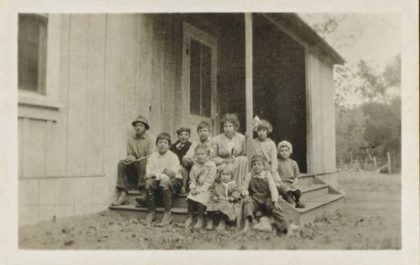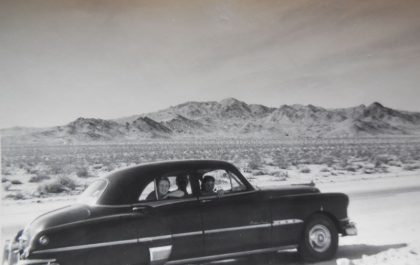Trailblazing journalist Ida Tarbell was one of a small group of citizen reporters at McClure’s monthly magazine who helped forge the role of the free press in the twentieth century. Citizen Reporters: S.S. McClure, Ida Tarbell, and the Magazine That Rewrote America, by Stephanie Gorton tells her story.
Today, a handful of prominent national representatives have recently embraced the mantle of “progressivism,” calling for widespread reform of environmental policy and the correction of long-standing social and racial inequities. Criminal justice reform, raising the minimum wage, and Medicare-for-all have become flashpoint issues across the country while critics lament the imposition of a bloated government.
Perhaps the most serious challenge to progressive ideas is the failure to effectively communicate the nature of the problems in need of solutions. In the Age of Trump, we can become easily distracted by the latest bombast which regularly subsumes any legitimate discussion of practical reform. Even the clearest expressions of progressive thinking – such as the very real numbers that underscore American injustice – are lost in a hail of antagonizing media posts that decry the slightest hint at change.
And while a toxic media environment is definitely part of the problem, we should take hope that it hasn’t always been this way, and that, at one time, a thoughtful and dispassionate media served as a conduit to make our society better. From 1893-1906, before radio and TV transformed American culture, McClure’s embodied the power of a free and unfettered press to inform and enlighten.
With fiery editor S. S. McClure at the helm during the magazine’s rise as a social force, McClure’s played an instrumental role during the Progressive Era as the nation pivoted from its rural origins while confronting an urban reality that makes modern problems seem almost trivial.
At the birth of our nation, with a population of about 4 million, roughly 5 percent of Americans lived in urban areas. We were, at our founding, a nation of small farmers.
By 1900, the population had reached 76 million and 40 percent of Americans lived in cities. By 1920, fully half of the country’s 106 million people lived in urban centers densely populated by those seeking new opportunities in industry. As vast fortunes were accumulated in oil, steel, coal, railroads, and banking during this so-called Gilded Age, the massive growth of cities and the quick unregulated industrialization of the nation led to human problems of the highest order:
Poor Americans and newly arrived immigrants packed into squalid living quarters and shared their cramped spaces with rats and roaches. Clean water and sewage disposal were largely unavailable. The air was filled with smoke billowing from the factories whose jobs promised—and dramatically failed to deliver—so much hope for so many.
As a harsh illustration of American life at the turn of the last century, before the widespread availability of the automobile, quite literally millions of pounds of horse manure and tens of thousands of gallons of horse urine were deposited on New York City streets each day.
Men, women, and children toiled away in factories whose owners had no incentive to pay decent wages or safeguard workers. City children rarely attended school as their labor was needed to pay exorbitant rent charged by landlords well aware that their tenants had few real choices. Injured workers were quickly replaced with the vast and largely unchecked flow of immigrants arriving from Europe. In the early 1900s, roughly 15,000 to 20,000 American workers lost their lives each year in the workplace.
Health care was non-existent; unless you count the vast number of patent medicines that were marketed with remarkable claims of curing just about everything that could go wrong with the human body. Many of these “medicines” contained opium, cocaine, and grain alcohol.
As a monthly magazine of some 80 to 90 pages, McClure’s addressed a wide variety of topics while introducing American readers to writers like Jack London, Arthur Conan Doyle, Lewis Carroll, and HG Wells. Most significantly, a handful of journalists known as the McClure’s Group essentially invented investigative journalism.
Lincoln Steffens—in his Shame of the Cities series—exposed corrupt local governments whose systems operated for the benefit of a few at the expense of the health, safety, and well-being of citizens. Pockets were padded while streets went unpaved and raw sewage festered in the streets.
Steffens’ work illuminated urban problems, which charted the course for reform. Ray Stannard Baker uncovered workplace abuses and the relentless struggles of workers with few protections regarding wages, hours, and working conditions. He also informed readers living in a highly segregated America of the plight of African Americans under Jim Crow.
Holding it all together while simultaneously defying the limitations placed upon women, Ida Tarbell served as a balancing force to SS McClure, whose brilliance and outrageous behavior were delivered in equal measure.
Tarbell’s twenty-part series on the greed and malfeasance of Standard Oil directly attacked one of the most powerful robber barons in the country. John D. Rockefeller controlled something like 80 percent of oil production in the United States, leveraging his vast wealth to swallow up small competitors. One of his victims was Tarbell’s father, whose family faced the brunt and shame endemic to the masses under raw and unchecked capitalism.
As progressives introduced reforms, they were received by an American audience educated in the abuses of American life at the turn of the twentieth century. The primary question for us today is whether we are willing to similarly explore the abuses of our own world.
Magazines like McClure’s at one time did the dirty work of holding American institutions accountable. And lest you wonder whether journalism can once again return to this Golden Age, it might be comforting to know that McClure’s operated alongside daily newspapers that, over 100 years ago, glorified crime, sensationalized scandals, heeded little to the facts, and manufactured news as much as they reported it. Sound familiar?
So, the next time you find yourself wading knee deep in the effluence of a million scattershot social media posts with no cohesion, no sustained thought, fleeting nasty words thrown into the polyglot drone of mindless and unending drivel, give yourself a break and pick up a book like Stephanie Gorton’s Citizen Reporters.





